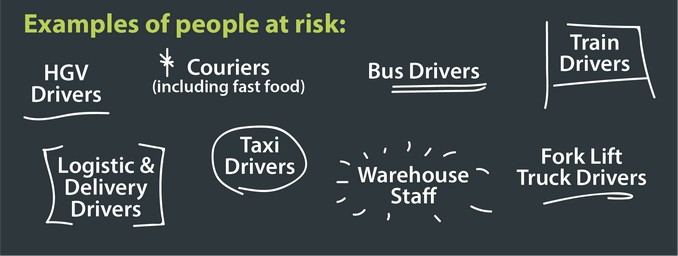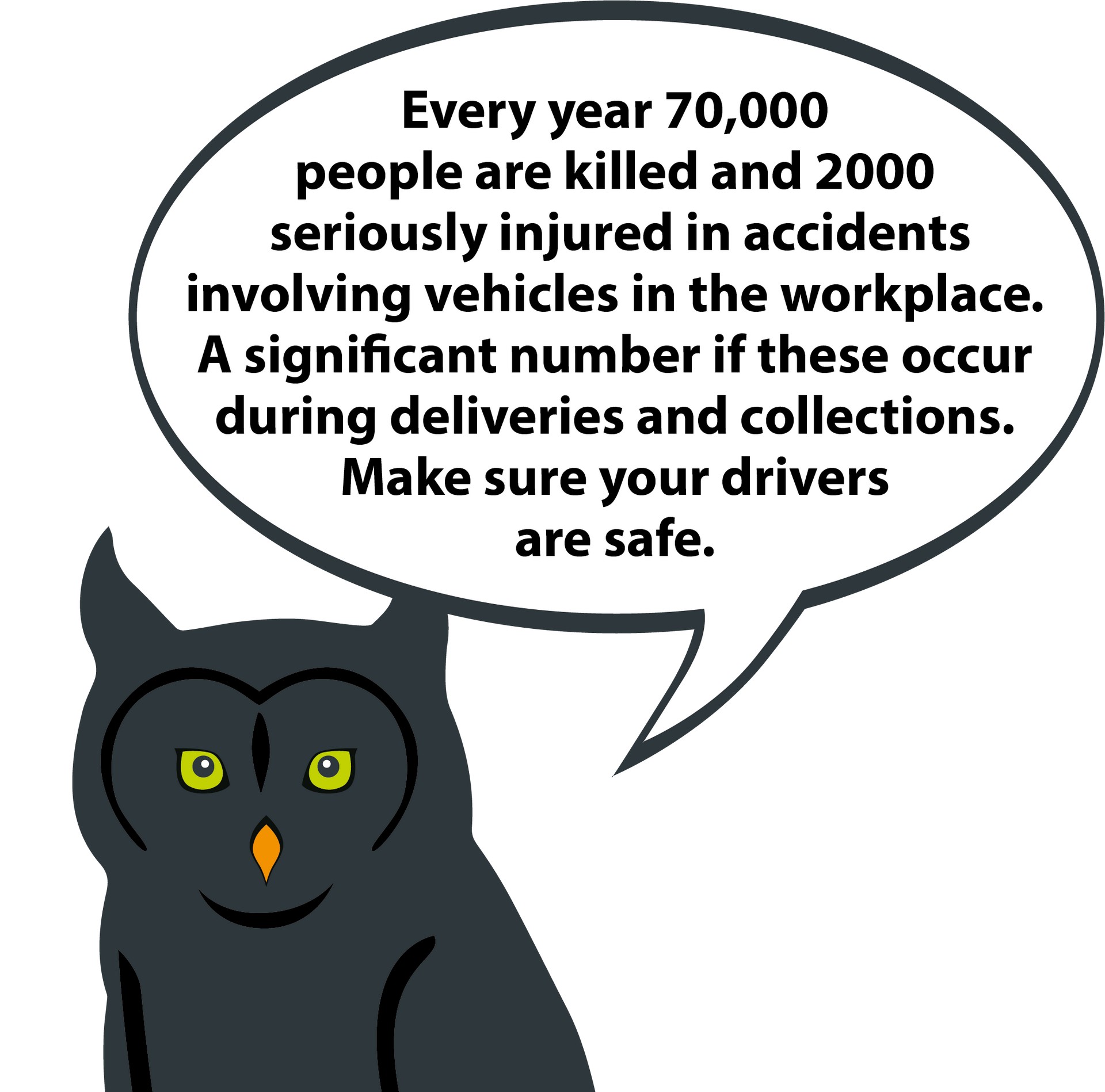Lone worker protection for the logistics industry
Working in logistics, transport and distribution brings about its own set of challenges. Employees face long periods spent working alone, in a high-risk environment where dangers like traffic accidents and physical attacks on themselves and their cargo are pervasive.
Furthermore, many of these employees work through the night, increasing the threat of personal attacks. The greatest danger faced by lone workers are slips and falls, particularly as more people moved to deliveries to unmanned sites.
If you have any stories about your time out on the road please get in touch, we would love to hear from you.

Our risk assessment
To carry out a risk assessment you need to think about what might cause harm to your employees and decide whether you are taking the reasonable steps needed to prevent any harm.
A risk assessment is something you are required to carry out by law. We have teamed up with lone working specialist trainer Jackie Dolan and created a comprehensive risk assessment for people working in logistics.

LONEALERT Solutions for the logistic industry:
Workers in logistics will often be remote – including drivers on the road, delivering, or overnighting, as warehouse staff loading and unloading lorries and storing products. Warehouses can be dangerous places with automated and manned vehicles moving about, high racking and large, heavy objects moving about.
LONEALERT and the O.W.L allows you to control the risks to lone workers in these, and other activities by mixing and matching lone worker alarms and response to suitable response protocols.We can also offer lone worker training for clients in the logistics sector.

LONEALERT Access:
What is it?
Use existing phones – smartphones, cab phones or feature phones to access lone worker protection in a simple and cost effective way.
How it can work?
A courier driver is about to set off. Using his phone, he sends a message to The O.W.L with his delivery location, route and expected duration of the next leg of his journey. After he has completed his leg, or made delivery, he sends another message to cover the journey back. Once safely back, he sends a message to cancel. If he doesn’t cancel before the time limit ends, The O.W.L automatically checks on him, and if there is no response, and alarm is raised.
LONEALERT Instant:
What is it?
Offering all the features of LONEALERT Access, Instant adds dedicated devices with GPS, Man Down fall detection, SOS button and one button creation of timed periods.
How it can work?
A forklift truck driver starts work in an area of the warehouse with low footfall. The Instant device is worn – and the employee goes about his business. In the event of a forklift truck tip, the fall detector will activate and help will be called. Accidental activation is avoided through the pre-alarm giving him chance to cancel. Should a racking collapse occur the panic button will let him raise the alarm and call for help.


LONEALERT Plus:
What is it?
Plus offers all the features of LONEALERT Instant, including access to Access. It also adds a rugged and shockproof case, extended battery life, LCD screen and a range of bolt-ons. Atex Intrinsically safe options are also available.
How it can work?
Steve is about to make a delivery to an unmanned delivery point in his employers network. The site does not allow mobile phone use due to presence of explosive materials. Steve simply take his Plus ATEX out of the charging cradle and clips it on. The ATEX rating means it is safe to use. At the gate is an RF Tag, which he swipes. This logs Steve into LONEALERT and also tells the O.W.L. which depot he is delivering to. If he slips and falls on site, and can’t reach help he can press the panic button, or the Man Down will automatically operate. The alarm is raised and his respondents are alerted, along with full contact details for the delivery location.
Working in a location where mobiles are fine to use? Just use the non-Atex Plus devices.
LONEALERT Anywhere:
What is it?
Including all products within the LONEALERT Access range, the Anywhere solutions is great for those who work in remote areas with very limited mobile signal.
How it can work?
One of your delivery routes is to a very remote area, and the driver spends a lot of time without mobile reception. This also affects your vehicle tracking. The Anywhere allows the driver to press a button periodically to check-in and confirm he is okay, with GPS position. If he doesn’t check in, or the panic button is pressed then help is alerted to his last known position. The Anywhere can also be set to record positions automatically to keep track of the driver en route.



